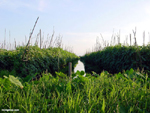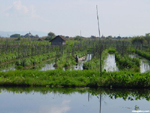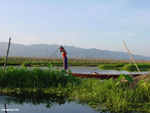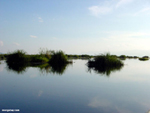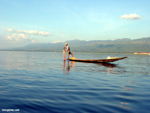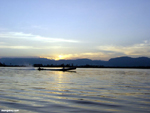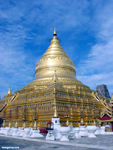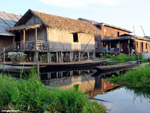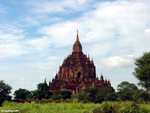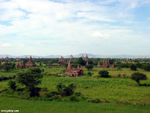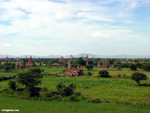Burma (Myanmar) Pictures
Below you will find photo collections of places from around the world. All images are the property of Rhenda Glasco. Contact me with questions regarding use, reproduction, or purchase of any of the pictures.
 Recommended travel guides on Burma:
Recommended travel guides on Burma:
Burma -- from Wikipedia
The Union of Myanmar, formerly the Union of Burma, is the largest country in Southeast Asia. It is bordered by the People's Republic of China on the north, Laos on the east, Thailand on the south east, Bangladesh on the west, and India on the north west, with the Andaman Sea to the south, and the Bay of Bengal to the south west (for a total of over 2,000 kilometers of coast line).
In 1989, the country officially changed the English version of its name from Burma to Myanmar (along with changes in the English versions of many place names in the country, such as its capital city, from Rangoon to Yang�n). However, the official name of the country in the Burmese language, Myanma ( ), did not change. The English renaming proved to be politically controversial, seen by some as being less inclusive of minorities and unscholarly.
The country has been ruled by a military junta led by General Ne Win from 1962 to 1988, and its political system today remains under the tight control of the military.
Politics
Myanmar has been under military rule since 1962. The current head of state is General Than Shwe who holds the title of "Chairman of the State Peace and Development Council." His appointed prime minister was Khin Nyunt until 19 October 2004, when he was replaced by Lt.-Gen. Soe Win. Almost all cabinet offices are held by military officers. US sanctions against the military government have been largely ineffective, due to loopholes in the sanctions and the willingness of mainly Asian business to continue investing in Myanmar and to initiate new investments, particularly in natural resource extraction. For example, the French petroleum company Total is able to buy Myanmar's oil despite the country being under sanctions, although Total (formerly TotalFinaElf) is the subject of a lawsuit in French and Belgian courts for alleged connections to human rights abuses along the gas pipeline jointly owned by Total, the American company Unocal, and the Myanmarian military.1 The United States clothing and shoe industry could also be affected if all the sanctions loopholes were to be closed, although they were already subject to boycotts prior to US sanctions imposed in June of 2002.2
The regime is accused of having a poor human rights record, and the human rights situation in the country is a subject of concern for a wide number of international organizations. There is no independent judiciary in Myanmar and political opposition to the military government is not tolerated.
Aung San Suu Kyi, whose party won 83% of parliamentary seats in a 1990 national election, but who was prevented from becoming prime minister by the military, has earned international praise as an activist for the return of democratic rule to Myanmar. She won the Nobel Peace Prize in 1991. She has been repeatedly placed under house arrest, although in recent years the regime has been willing to enter into negotiations with her and her party, the National League for Democracy. She was most recently placed under house arrest on May 31, 2003, following an attack on her convoy in northern Myanmar. She remains under house arrest
Human rights in Myanmar
Human rights in Myanmar are a long-standing concern for the international community and human rights organizations. There is general agreement that the military regime in Myanmar (Burma) is one of the world's most repressive regimes.
The Freedom in the World 2004 report by Freedom House notes that "The junta rules by decree, controls the judiciary, suppresses nearly all basic rights, and commits human rights abuses with impunity. Military officers hold most cabinet positions, and active or retired officers hold most top posts in all ministries. Official corruption is reportedly rampant both at the higher and local levels." [1]
Brad Adams, director of Human Rights Watch's Asia division, in a 2004 address described the human rights situation in the country as appalling: "Burma is the textbook example of a police state. Government informants and spies are omnipresent. Average Burmese people are afraid to speak to foreigners except in most superficial of manners for fear of being hauled in later for questioning or worse. There is no freedom of speech, assembly or association."
Forced labour
According to the International Confederation of Free Trade Unions several hundred thousand men, women, children and elderly people are forced to work against their will by the administration. Individuals refusing to work may be victims of torture, rape or death.
The International Labour Organization has continuously called on Myanmar to end the practice of forced labour since the 1960s. In June 2000, the ILO Conference adopted a resolution calling on governments to cease any relations with the country that might aid the junta to continue the use of forced labour. [3]
Freedom of speech and Political freedom
A 2004 Amnesty International report names more than 200 individuals imprisoned between 1989 and 2004, who are among more than 1,300 political prisoners who, according to the organization, have been imprisoned after unfair trials. The prisoners, including National League for Democracy (NLD) leaders Aung San Suu Kyi and U Tin Oo, have "been wrongfully denied their liberty for peaceful acts that would not be considered crimes under international law", Amnesty International claims. [4].
The Freedom House report notes that the authorities arbitrarily search citizens' homes, intercept mail, and monitor telephone conversations, and that the possession and use of telephones, fax machines, computers, modems, and software are criminalized.
Children's rights
According to Human Rights Watch, recruiting and kidnapping of children to the military is commonplace. An estimated 70,000 of the country�s 350,000-400,000 soldiers are children. There are also multiple reports of widespread child labour.
Conservation news for Burma
|


